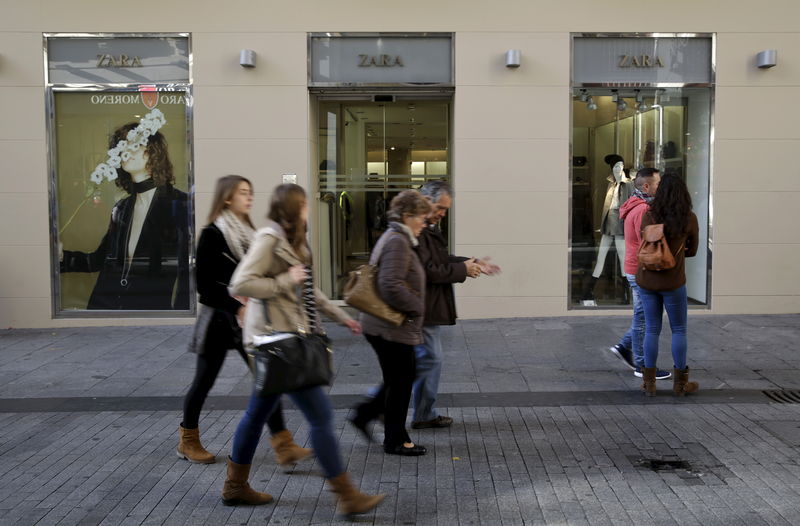By Elisabeth O'Leary
MADRID (Reuters) - Spain's Inditex (MC:ITX), owner of the Zara chain and the world's biggest fashion retailer, is optimistic about long-term growth in China despite the slowing economy, as demand for its affordable fashion stays robust.
Inditex, whose Zara brand has lured shoppers this season with a minimalist straight-cut look, teaming muted colours with ankle boots and trousers, makes about 7 percent of its sales in China, analysts estimate.
Western luxury brands like Burberry (L:BRBY) and Hugo Boss (DE:BOSSn) are suffering from cooling Chinese demand, but mid-market names like Adidas (DE:ADSGn) and Zara are faring better.
"We have no doubt that in China the fashion appetite is large, our brands are better and better known and ... we are still feeling very optimistic (over a five-year view)," Chief Executive Pablo Isla told analysts on Thursday.
The group made a sprightly start to the Christmas season as its on-trend offerings allowed it to adapt better than rivals.
Sales from Nov. 1 to Dec. 3 rose 15 percent in local currencies, suggesting a slight slowdown in same-store sales from the previous three months. But analysts said it was still a strong performance given rivals like Top Shop have had a slow start to Christmas trading due to mild weather.
"We can say that Inditex is trading just as strongly in the fourth quarter to date as it did in the third," Societe Generale (PA:SOGN) analyst Anne Critchlow said.
In the nine months to end October, net profit rose by a fifth to 2.02 billion euros (£1.4 billion) on sales up 16 percent to 14.7 billion.
Isla said newer brands like Zara Home, Bershka and Stradivarius had performed particularly well.
Gross margin, a closely-watched measure of profitability, slipped slightly to 58.8 percent, as the strong dollar pushed up prices of garments sourced in Asia, though this affects Inditex less than its peers.
Inditex sources more goods in or near Europe, helping it adapt more quickly to fashion tastes and speedily deliver new ranges.
Inditex shares, up 37 percent this year, were down 1.5 percent by 1037 GMT, versus a 0.7 percent fall in the European retail sector (SXRP).

Many market watchers have flagged the rich valuation of the stock, trading at around 34 times 2016 projected earnings, according to Reuters data, versus 24 times for rival Hennes & Mauritz (ST:HMb).